Hay Festival Digital Querétaro 2020
Hay Festival Digital Queretaro 2020 has finished. You can see all the events on the Hay Player, our online archive containing the audio and video of the events from all the Hay Festivals.
Event HFJ12
Mariana Matija in conversation with Naobi López Huerta
Another relationship with the Earth
Universidad Anáhuac, Aula Magna Edificio C
Read moreMariana Matija (Colombia) is a communicator and creative researcher who explores other relationships with the Earth and its creatures and cycles; she is also the author of Niñapájaroglaciar. With a familiar, reflective voice, she offers a proposal of conscious and harmonious relations with nature, based on an everyday ecology, one that is eminently possible. This would put care of the planet at the centre, and make it possible to live in the world in a more balanced way. In conversation with Naobi López Huerta.

Event HFJ14
Michel Nieva in conversation with Abdiel Hernández Mendoza
The hacking of science fiction
UNAM ENES
Read moreMichel Nieva (Argentina) is a creator of gaucho-punk, which fuses the gauchesca tradition with the cyberpunk genre. In Ciencia ficción capitalista he draws our attention to the capitalist fantasies of the technological gurus. This essay explores how the language of science fiction has been kidnapped by the neoliberal ideas of Bezos, Musk, Zuckerberg and co. In conversation with Abdiel Hernández Mendoza.

Event HFJ15
Tania Tagle in conversation with Angélica Aguado
UAQ, Auditorio Adolfo Chacón Gallardo, Facultad de Psicología y Educación, Centro Universitario
Read moreTania Tagle (Mexico) is a writer with a meticulous literary style, one employed in Fauce to tell how, after a bereavement, the protagonist finds the words to speak to her son through a fog of silence. In Jardines errantes, her previous book, she cultivates a garden of words with a sensitive approach that allows her experiences as a daughter, mother, reader and inhabitant of this world to flourish. In conversation with professor Angélica Aguado.

Event HFJ16
Juan Gabriel Vásquez in conversation with Julieta Díaz Barrón
Museo de la Ciudad (sala 2)
Read moreJuan Gabriel Vásquez is one of the most celebrated and outstanding authors in contemporary Colombian literature. At this event he will talk about his most recent book, Los nombres de Feliza, a recreation of the life of the sculptor Feliza Bursztyn, who was a freethinking artist who went beyond the limits set by the times for women like her. This rigorous novel weaves together art, history and memoir. In conversation with Julieta Díaz Barrón.

Event HFC6
Workshop with Adolfo Córdova
The character poem: between story and verse
Parque de la Mantarraya, Delegación Félix Osores
Read more
Event HFJ17
Jumko Ogata in conversation with Paola Gallardo
A practical guide to antiracism
UNAM ENES
Read moreIn the tradition of Ibram X. Kendi (How To Be an Antiracist) and Djamila Ribeiro (Pequeno manual antirracista), the writer, translator and antiracist activist Jumko Ogata (Mexico) presents ¡Quiero ser antirracista!, a practical manual for taking a step forward and combatting structural racism in all its forms. In conversation with Paola Gallardo.

Event HFJ18
Performative lecture by Mariela Sancari
Turn the eye into a hand. Turn the hand into an eye.
UAQ, Biblioteca Campus Centro Histórico - Dirección General de Bibliotecas
Read moreWe know that the relationships between images and texts can be multiple and open, and can even go beyond logocentrism. In her performance/talk Hacer del ojo, mano. De la mano, ojo, the artist Mariela Sancari will explore the notion of heterotopía through photographs and texts. To do so, she will transform a table into a device for thinking: a surface where images and words participate in a play of ever-changing and reconfigurable relationships.

Event 6
Juan Villoro and Aura García-Junco in conversation with Jesús Alejo
Hay Festival Constellations: literature
Teatro de la Ciudad
Read moreHay Festival Constellations creates a space for intergenerational dialogue within the Mexican cultural scene, in fields such as literature, film, music, science and architecture. At this event Juan Villoro and Aura García-Junco offer their thoughts as a mirror on their respective times: through essay, fiction, short stories, journalism and more, to reflect on what each one’s pen, or keyboard, can express. In conversation with Jesús Alejo.
SURA event

Event 8
Reed Brody and Andrea Rizzi in conversation with Olivia Zerón
Justice against power
Museo de la Ciudad (espacio escénico)
Read moreThe writers Reed Brody (USA) and Andrea Rizzi (Italy) will talk to Olivia Zerón about urgent matters such as the relationship between power and impunity, as well as the political uncertainty that this creates. Brody, known as the Dictator Hunter, tells the story in To Catch a Dictator of the campaign to bring the Chadian dictator Hissène Habré to trial. In La era de la revancha Rizzi analyses the new global order, characterized by the rise of authoritarian regimes who scorn multilateral initiatives.

Event 55
Valeria Luiselli in conversation with Gaby Wood
Cineteca Rosalío Solano
Read moreValeria Luiselli (Mexico) has spent years passing borders in her work. The tangible and the intangible ones: borders of geography, family, the body, memory and language. In Desierto sonoro she wrote about migration and infancy; now, with Ecos de las tierras fronterizas she presents an audio project —together with Ricardo Giraldo and Leo Heiblum— about the violence on the US/Mexico border.

Event HFC7
Conversation with Edgar David Aguilera and Alfredo Rodríguez Karmix
Kalimán
Biblioteca Juan de Dios Bátiz Paredes, Delegación Josefa Vergara
Read moreThere is a superhero whose powers reside in the mind, the body and in an unbreakable spirit. With his white tunic, turban and an emerald with a K on his forhead, Kalimán was, and continues to be, an icon of Mexican and Latin American pop culture. Together with his associate Solín, he has been fighting evil since the 1960s, on radio and in bestselling comics. He also conquered cinemas in the 70s. Considered to be the first Mexican superhero, he showed us that there is no weapon more powerful than the mind, and that «whoever controls the mind, controls everything». Conversation with Edgar David Aguilera y Alfredo Rodríguez Karmix, co-screenwriters of Kalimán: El despertar.

Event TE1
Francisco Llorca, Edgar Trevizo and Luis Sandoval talk to Cristina Fuentes la Roche
Publishing talent: Independent publishers. What do they publish and why?
Museo de la Ciudad (sala 2)
Read moreSpanish-language independent publishing is of a wonderful richness and variety. Three very different publishing companies will talk about their work and their aspirations. Francisco Llorca (Las Afueras, Spain), Edgar Trevizo (Medusa Editores, Chihuahua-Mexico) and Luis Sandoval (Mishin ediciones, Queretaro-Mexico) will talk to Cristina Fuentes la Roche.
Co-organized with Librerías Cálamo and AECID
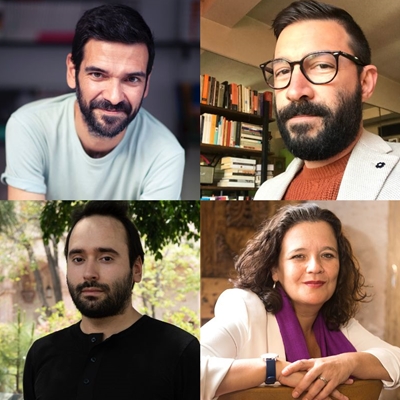
Event CL1
Reading club with Arnoldo Gálvez and Emilia Pesqueira
La era glacial
Casa Hay Festival (C. Francisco I. Madero 71)
Read moreEmilia Pesqueira’s reading club comes to Hay Festival Queretaro with Arnoldo Gálvez (Guatemala) and his novel La era glacial. The truth can hurt, but the novel’s two main characters find in their improbable friendship a link that can keep them together now they are on the brink of death.
Sponsored by SURA

Event 9
Kevin Johansen and Liniers in conversation with Mariana H
Teatro de la Ciudad
Read moreKevin Johansen and Liniers present Es nuestra forma de comunicarnos, which is based on the album Desde que te Madrid, recorded in the Spanish capital. This is an event that brings together two different languages ‒music and illustration‒ to make something new, with elements of humour, affinity and friendship. In conversation with Mariana H.

Event 10
Pankaj Mishra in conversation with Mario Arriagada
South to North Conversations
Cineteca Rosalío Solano
Read moreThe Global South has its own commentators, and when they write, the West rarely comes out well. The essayist and novelist Pankaj Mishra (India) is one of the most incisive and lucid of these voices. In Age of Anger he traces the links between contemporary violence and the rise of individualism and capitalism; while in The World After Gaza, he extends his criticism to the global racial order imposed by the West. In conversation with Mario Arriagada.
Simultaneous interpretation from English to Spanish available
Supported by the Open Society Foundations
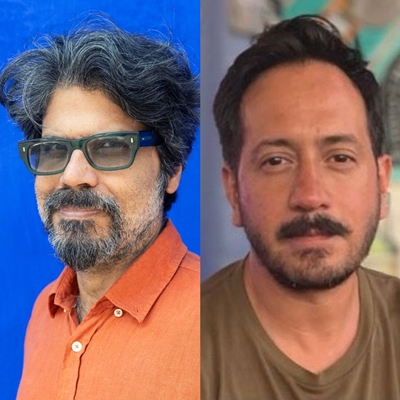
Event 11
Selma Dabbagh and Elisa Díaz Castelo in conversation with Gaby Wood
Literary pairs
Museo de la Ciudad (espacio escénico)
Read moreAs part of the Literary Pairs series run by the Hay Festival and the British Council, and an event that will be repeated at the Hay-on-Wye Festival in 2026, the British-Palestine writer Selma Dabbagh and Elisa Díaz Castelo, one of the most powerful voices in contemporary Mexican literature, will take part in a conversation together with Gaby Wood. At the event they will talk about their fiction and about works such as Out of It and Malacría respectively.
Simultaneous interpretation from English to Spanish available
With the support of British Council

Event CL2
Leo con Once reading club. Paulina Flores in conversation with Miguel de la Cruz
Casa Hay Festival (C. Francisco I. Madero 71)
Read moreThe Leo con Once reading club comes to Queretaro with the Chilean author Paulina Flores and her novel La próxima vez que te vea, te mato, which dissects, with considerable irony, the emotional insecurities of a young Chilean woman trapped in a polyamorous relationship in Barcelona. She will talk to the cultural journalist and Canal Once presenter, Miguel de la Cruz.
Sponsored by SURA, with the support of UNAM
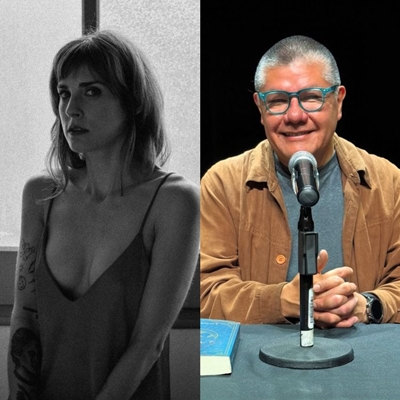
Event TE2
Nena Mounstro and Javier Peña in conversation with Isabel Posadas
Publishing talent: literary podcasts
Museo de la Ciudad (sala 2)
Read moreThey guide, influence, rouse passions… literary podcasts have become a media phenomenon for readers, and a vital shop window for the publishing world. Chismecitos literarios and Grandes infelices are two of the most successful in Mexico and Spain. Their respective creators, Magali Torres (Nena Mounstro) and Javier Peña will talk to Isabel Posadas.
Co-organized with Librerías Cálamo, AECID, and with the support of Acción Cultural Española, AC/E
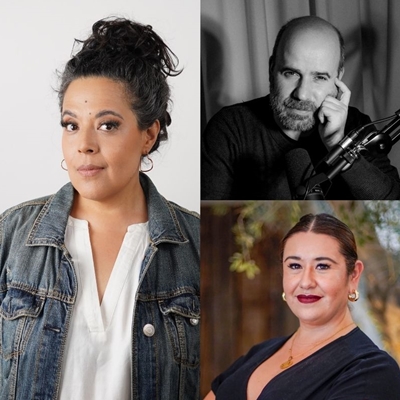
Event 12
Almudena Bernabéu in conversation with Andrés Rozental
When state political violence turns transnational
Museo de la Ciudad (espacio escénico)
Read more
Event 13
Visual and sound performance with Ricardo Giraldo, Leonardo Heiblum and Valeria Luiselli
Echos from the borderlands
Teatro de la Ciudad
Read moreEcos de las tierras fronterizas is a sonic journey that follows the US/Mexico border from west to east, tracing a route that explores histories of violence and resistance. Its creators (Ricardo Giraldo, Leonardo Heiblum y Valeria Luiselli) will take part in a conversation after the presentation.
Ecos de las tierras fronterizas has been created in partnership with the Dia Art Foundation.

Explore All Genres
- Afrodescendencias
- Constelaciones Hay Festival
- South to North
- Architecture
- Art
- Arts & Culture
- Children
- Comedy
- Crime
- Culture
- Drawing
- Education
- Equality
- Family
- Film
- Gender
- Heritage
- History
- Human Rights
- Journalism
- Language
- Literature
- Music
- Nature & Environment
- Performance
- Photography
- Podcast
- Poetry
- Politics
- Psychology
- Science
- Technology
- War
- World Affairs
Principal Sponsor

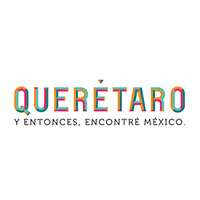


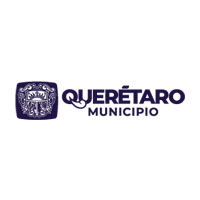

Partner for Latin America

